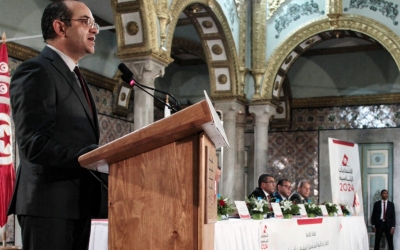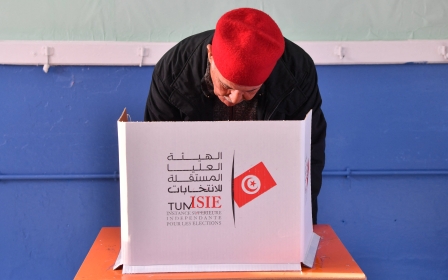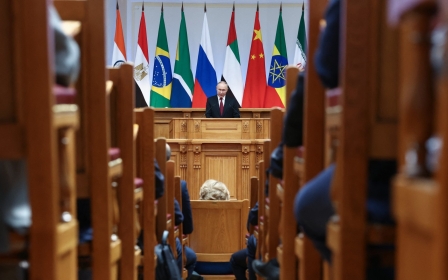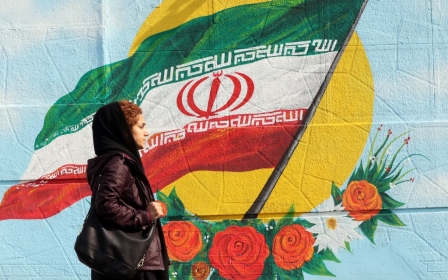Tunisia: Four arrested for mistakenly raising Turkish flag on public building
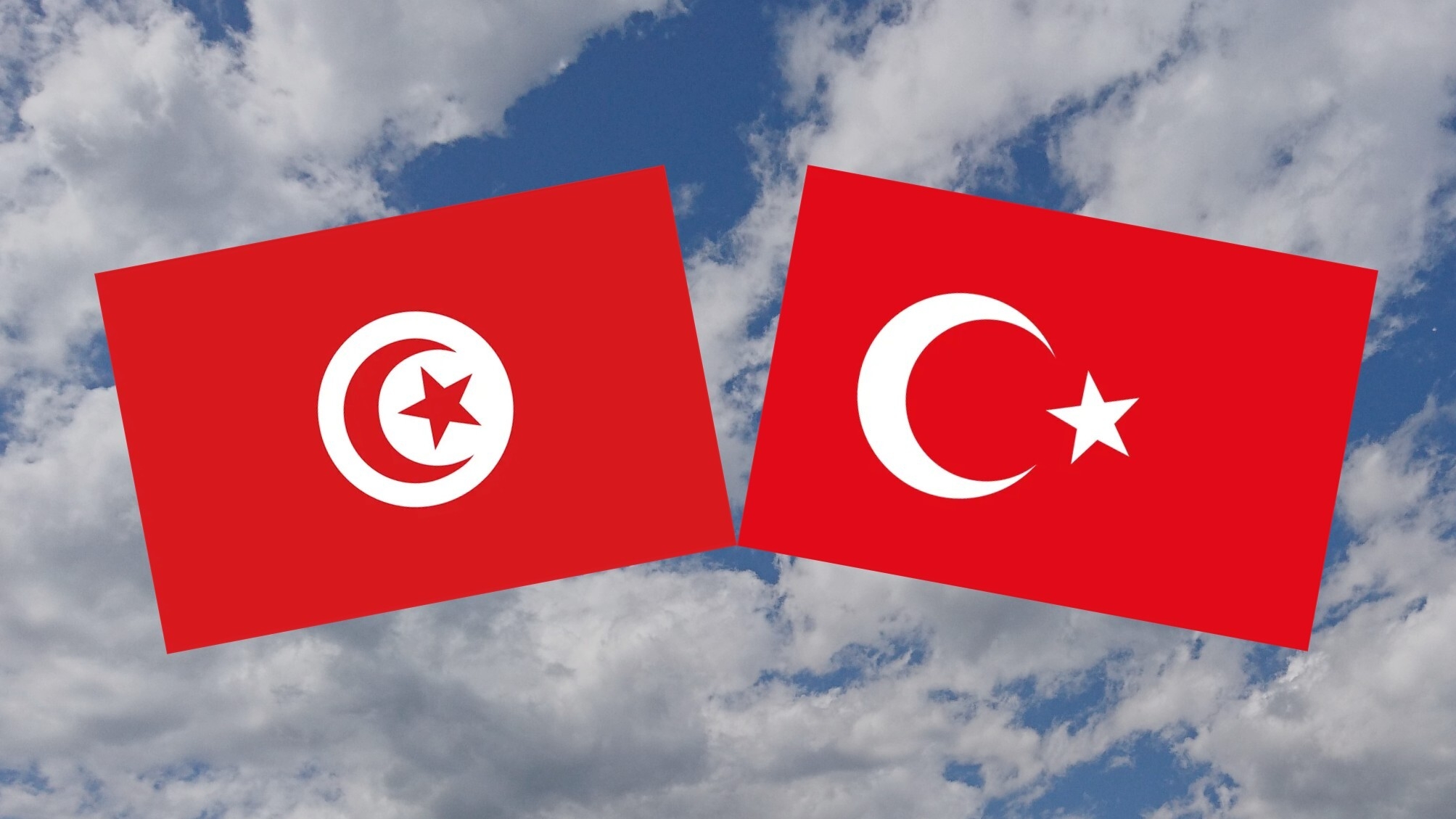
Four people have been arrested in Tunisia for mistakenly raising the red-and-white Turkish flag instead of the red-and-white Tunisian one above the headquarters of the public national railway company, according to local media reports.
The Tunisian National Railway Company (SNCFT), affiliated with Tunisia's transport ministry, has offered its "sincere apologies" and quickly removed the flag, which briefly flew above its building on Wednesday.
Explaining the blunder, the railway company said it had placed a group order for several flags and that the officials who received the flags only noticed their error "when the flag was raised".
The identity and role of the four people in custody have not yet been revealed.
The transport ministry has launched an investigation to "seek responsibilities and take administrative and regulatory sanctions" as Tunisia prepares for its presidential election on 6 October.
New MEE newsletter: Jerusalem Dispatch
Sign up to get the latest insights and analysis on Israel-Palestine, alongside Turkey Unpacked and other MEE newsletters
Both the Tunisian and Turkish flags are red-and-white and feature a star and crescent moon. Tunisia's flag has a red star and crescent within a white circle, while Turkey's star and crescent are white.
Tunisia's flag was established in 1835, when the North African nation was still part of the Ottoman Empire. The symbols of the star and crescent moon, long used by Turks, are closely associated with Turkey and Islam.
The current Turkish flag was adopted under the Ottomans in 1844 and then standardised as the flag of modern Turkey in 1936.
'The right to choose the wrong flag'
The image of the flag flying above the SNCFT headquarters has been widely circulated on social media, garnering various reactions.
"In Tunisia, only the president has the right to make mistakes. Colour-blind people and those who confuse small details are systematically arrested and sentenced by the courts," wrote "cyber-dissident" Gargabil on X.
"We have the right to choose the wrong flag, especially when there are two that look alike, right?"
Tunisian journalist Malek Khadhraoui commented on a local television clip in which the host said that those responsible for the flag raising should have "their heads cut off" by writing on social media that "collective madness" was gripping the country.
Other users, however, took a more severe line.
"It is impossible that this is a simple mistake. If you are a Tunisian, you see the flag on almost every street corner and you know the difference between the Tunisian and Turkish flag," wrote one user.
This is not the first time the current Tunisian authorities have been upset by a flag-related incident.
Last May, nine people were prosecuted and at least three arrested, including the president of the national swimming federation and the head of the Tunisian anti-doping agency, after the Tunisian flag was covered up during a swimming competition.
The flag had been covered in response to sanctions by the World Anti-Doping Agency (Wada), which had banned the flag from being displayed at competitions in Tunisia for non-compliance with the World Anti-Doping Code.
Hours after the incident, Saied visited the pool, raised the flag and sang the national anthem. He described the flag-covering as an "act of aggression" and said: “Tunisia cannot tolerate this."
Since his election in 2019, the Tunisian president has increased his grip on the country by dissolving parliament in 2021, seizing wide-ranging powers and ruling by decree - a move regarded as a coup.
Last year, Amnesty International said that human rights in Tunisia were "under assault" following Saied's "power grab".
Middle East Eye delivers independent and unrivalled coverage and analysis of the Middle East, North Africa and beyond. To learn more about republishing this content and the associated fees, please fill out this form. More about MEE can be found here.


